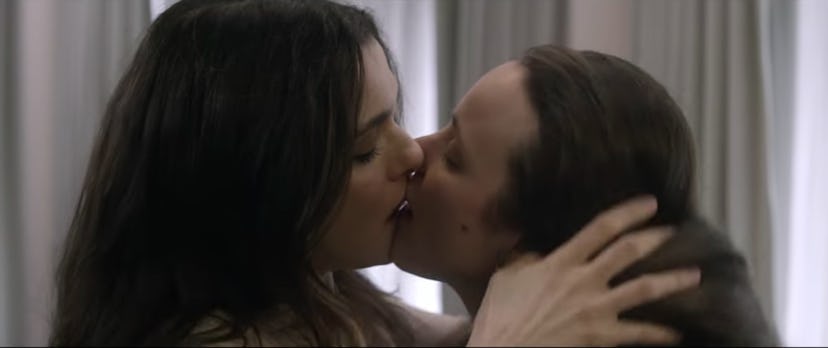Disobedience Trailer: Rachel McAdams and Rachel Weisz Are Orthodox Jewish Lovers
The six-minute sex scene between their Orthodox Jewish lovers is already famous.

The much-buzzed about Disobedience—which stunned the 2017 Toronto Film Festival with a six-minute sex scene between Rachel McAdams and Rachel Weisz—isn’t due out until April 27. But today brings the first look at it for those who weren’t at TIFF, courtesy of the debut trailer. In the almost three-minute teaser, we get a snapshot of the orthodox Jewish lovers whose star-crossed romance is at the heart of the film. The trailer lays the groundwork for the film, with Weisz’s character Ronit Krushka returning to her North London community in the wake of her rabbi’s death. While at home, Weisz reunites with tge childhood friend she fell in love with and was later shunned for, Esti Kuperman, played by McAdams.
“It’s insane that you’re here,” McAdams tells her when they have a rare private moment together outside. “Why did you get married?” Weisz asks McAdams, to which she replies, “I think he felt that marriage would cure me.” Clearly, Esti’s feelings haven’t changed since Ronit was forced out of their community. After the pair get caught embracing in a kiss by acquaintances, Esti tells her husband, “I want you to give me my freedom.”
The film, which marks director Sebastián Lelio’s English language debut, isn’t just about the pair’s romantic relationship though. “It’s about disobedience,” as Weisz said during TIFF to the Los Angeles Times. “It’s about obedience. It’s about how far we rebel from the place that we grew up in. Choosing your own path through that and not just doing what you’ve been conditioned to do by your family.”
Lelio, who worked alongside consultants from the Orthodox Jewish community as well as his own lesbian friends, according to IndieWire, opened up to the publication about the film and its already famous sex scene, saying, “Someone called it ‘Jew is the Warmest Color,’” Lelio said with a half-smirk, “but I think ours is a little less problematic.” He also shared how it happened: “We created a very intimate, protected set,” he said. “They were brave from the beginning. I felt so lucky to be dealing with real artists willing to take a risk. Acting is risk—it’s about trusting a director, and blindly jumping off the cliff.”